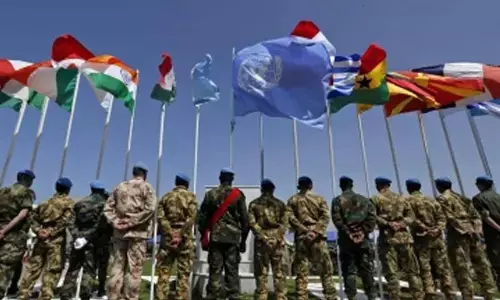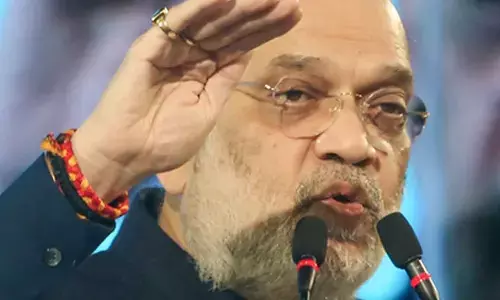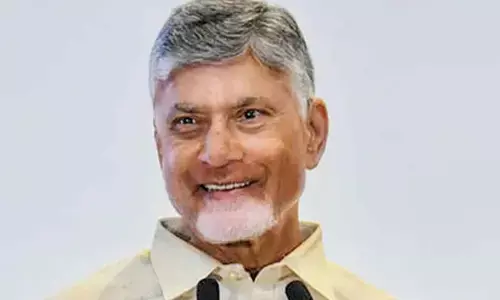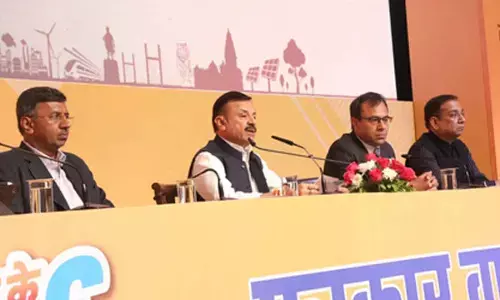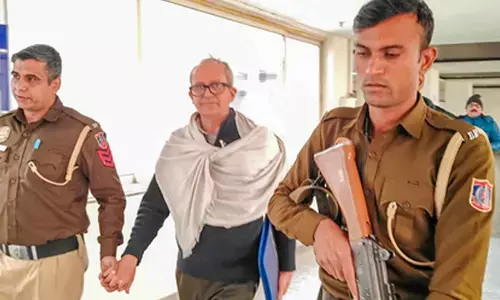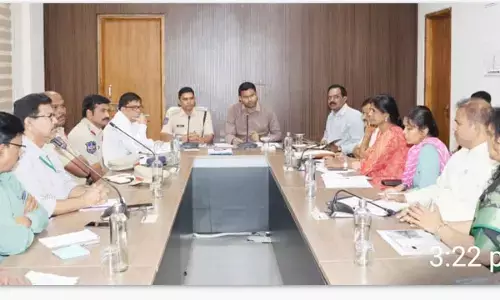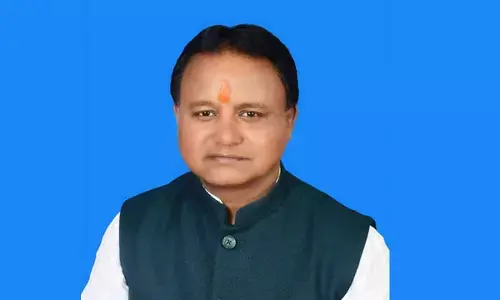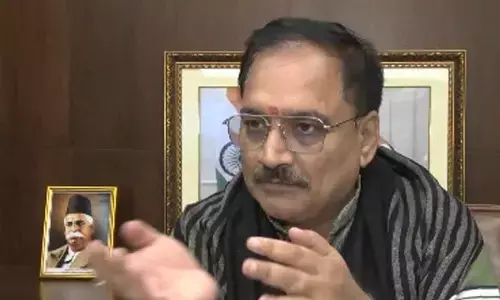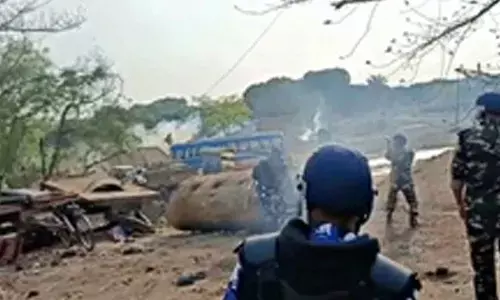Freedom of press & democracy
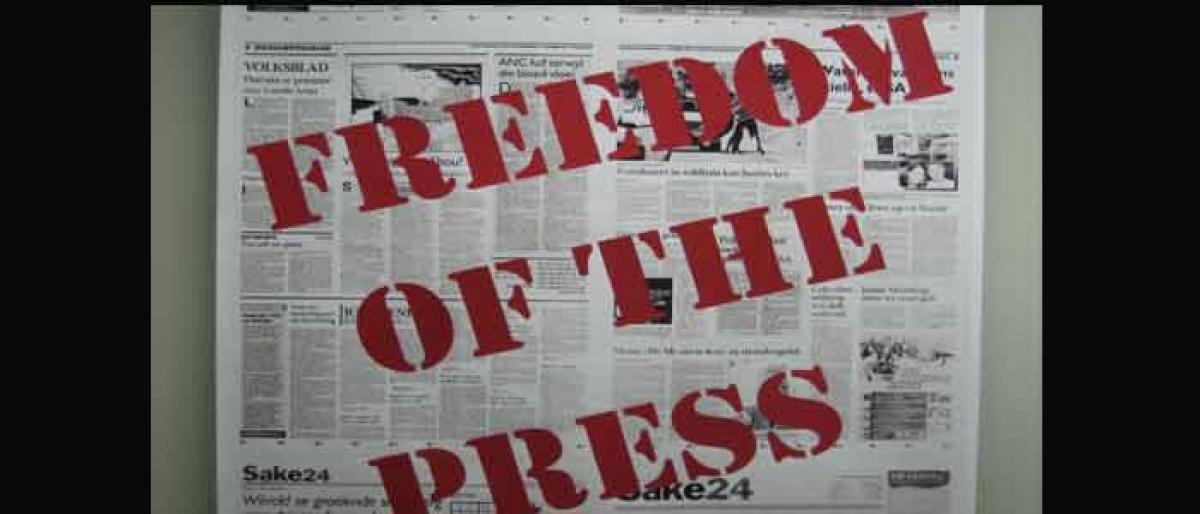
The scrolls, break news, polls form the basis of sensational news, even as the trolls in social media get viral and reach millions. (Troll means an irresponsible comment on Facebook or twitter).
The scrolls, break news, polls form the basis of sensational news, even as the trolls in social media get viral and reach millions. (Troll means an irresponsible comment on Facebook or twitter). The power of media and social media runs parallel and influence mutually.
While electronic media bombards with breaking news, citizens and leaders equally can use the tweets, Facebook and Whatsapp transcript encrypted (supposed to be protected) messages to reach millions of people without bothering the geographical borders. Exchange of information between the ruler and the ruled could happen in myriad forms.
With expansion of this media power, the state is also extending its jurisdiction on the common man. Besides journalists, it is arresting netigens and citizens for ‘offensive’ comments, ‘embarrassing remarks,’ ‘satiric’ cartoons and ‘insulting’ caricatures. Police intrude drawing rooms at early hours to arrest nitizens for a Facebook posting or Whatsapp sharing. The state and the non-state factors are coming down heavily on people threatening their freedom of expression. One Mr Zakir Ali Tyagi was confined for 42 days for his comments against the rulers.
https://scroll.in/article/853786/i-still-dont-understand-my-crime-up-teenager-jailed-for-facebook-posts-in-april-seeks-answers Debajit Roy, merchant, and Anupam Tarafdar, the residents of Balurghat in north Bengal, were arrested for Facebook posts criticising traffic restrictions during Durga Puja. https://thewire.in/189265/bengal-arrest-facebook/.
Arrested for political criticism
Another person in Karnataka was arrested on September 8, 2017, after murder of Gauri Lankesh, for a comment against the persons with leftist ideology.
https://www.thenewsminute.com/article/bengaluru-police-arrest-22-yr-old-posting-facebook-hate-messages-gauri-lankeshs-murder-68077.
Arresting for political criticism and ‘offensive’ opinion is an abuse of state power and is against basic tenets of expression freedom. Facing police for political views on social media is a serious breach of constitutional right.
The other media – book and cinema – is equally in trouble. Street and state are unsafe for expressive persons. ‘Padmaavat’ is an example. Despite clearance by the film certification authority and the assertion of apex court, this expression is facing suppression by states and certain elements on streets. Some states argued before the Supreme Court against the freedom of expression. Are we free to imagine and write fiction?
One Additional Solicitor General argued that people do not have freedom to distort history. The court asked what is that ? He gave an example: if a producer shows our Father of Nation taking whisky, is it it not distortion? Then the advocate on other side asked: What is fiction in it?
Indian Express on Jan 25, 2018 gave a headline “There is freedom to stone school bus with children,” exposing protests against ‘Padmaavat’ movie causing a four-minute ordeal for children. Is the right to life of children of no value? Karni Sena and others can keep off from movie, campaign against it vociferously, but can’t use violence.
Issues of demanding information are of high concern. Aadhaar is such an issue today. Through Aadhaar, the state is collecting the private information of common people with unseen coercion, while even under RTI the state refuses to give basic information about public servants like recruitments, charge sheets and complaints or actions against them under wrongful claim of privacy. For state, it is private and for people is it duty to give all that information under threat! State is possessive of official information while citizen’s privacy is of no concern.
Official secret: An oxymoron
Official secret is a self-contradiction by itself. It could be even an oxymoron. If it is official, how that could be personal or secret? We still are being ruled by British legacy of Official Secrets Act 1923, which leaders of Independence movement demanded to be repealed. Right to Information in theory overrides the OS Act. But enough scope was created in the exceptions for survival of Official Secrets.
Aadhaar & civil death
With Jan Dhan, Aadhaar and Mobile, combinedly called JAM, the state is trying hard to convert every transaction into an electronic one. The digitalisation is one way an innovative programme, but not free from challenges to democracy. Now poor and middle classes have to surrender to the new master – technology.
They are deprived of ration even by an accidental match or mismatch of biometric data. If their present finger prints do not match with data at date of enrolling, citizen suffers civil death, one cannot even operate a bank account or use the mobile, can’t get a caste certificate, or income certificate, without which he cannot even join his children in schools.
Not having Aadhaar, makes him niraadhaar. It can cause ‘civil death’. You may be alive but you cannot survive! If right to vote is also linked with Aadhaar, the endeavour to de-duplication with accuracy might lead to the ‘civil death’ of a citizen. The Supreme Court in fact came to the rescue of the people and passed around six orders not to link it to several schemes.
The SC agreed linking only to PAN cards and bank accounts etc, and around six schemes. But various programmes are being added from time to time making Aadhaar mandatory. All the hopes are now pinned on the Supreme Court, which is hearing a batch of writ petitions.
Aadhaar is criticised as an affront to the very freedom. One of the major deficiencies of Aadhaar Act is that a person has no choice to decide not to have Aadhaar card. Once person is enrolled with Aadhaar, he cannot opt out of it.
If UIDAI denies the card illegally, or by defective technology, or for any reason, the aggrieved citizen has no right to complain. The Act says that person should approach the UIDAI to complain on his behalf, and the power to complain is given only to UIDAI. If UIDAI has illegally denied Aadhaar card, or if personal data is leaked or stolen or deliberately sold by officers of UIDAI, a citizen has to ask only UIDAI to complain on his behalf! He has nowhere to go. If any person has a complaint against UIDAI, the Aadhaar Act 2016 does not provide any way out.
Without law on privacy and data protection, feasibility, assurance of safety, a massive enrollment was done. After crores of citizens were enrolled under fear of deprivation of welfare and ration, the Aadhaar Act was passed wherein UIDAI is authorised to collect demographic and personal information besides biometric information.
There are hundreds of instances of leakage or selling of data but UIDAI denies. The UIDAI has banned 34,000 technological companies, which were once working for it. Complete personal information of more than 100 crore people is with the government, while government employees are protected by Official Secrets Act, in spite of Right to Information Act. Most of their service-related information is denied by PIOs, considering them as third party personal information.
Parties fighting against RTI
Political parties are fighting tooth and nail not to reveal their financial details. They do not want give information under the RTI Act. All parties are united, forgetting their differences, to fight against the transparency. Thanks to ADR and MKSS, we have at least the information about criminal, educational (or lack of it) or financial background of each contesting candidate.
But unfortunately, there are no penal consequences for false declarations. The fudging of accounts of expenditure by candidates to keep it low within limits is never probed. The source of their donations and names of donors continue to remain secret. While whole population pays maximum 30 per cent income tax, the political parties enjoy exemption without any accountability.
If they get donations of Rs 1,000 crore per annum, they should have paid Rs 300 crore tax, had there been no exemption. There is neither regulation of political parties, nor possibility of regulating the media. Not it is possible to imbibe culture of responsible commenting on social media. Expression right cannot survive without information and suppressing information is not good for democracy.
The people should not continue to be left out to remain subjects, they should empower themselves with information to become vibrant citizens and question the parties and wrongs by media and social media. The political parties and the media should voluntarily come under the RTI and give information to the people to make India a real democracy. (Part of Author’s address “Scrolls, Trolls and Polls: Information and Political Parties” at Hyderabad LitFest on 28th Jan 2018)








